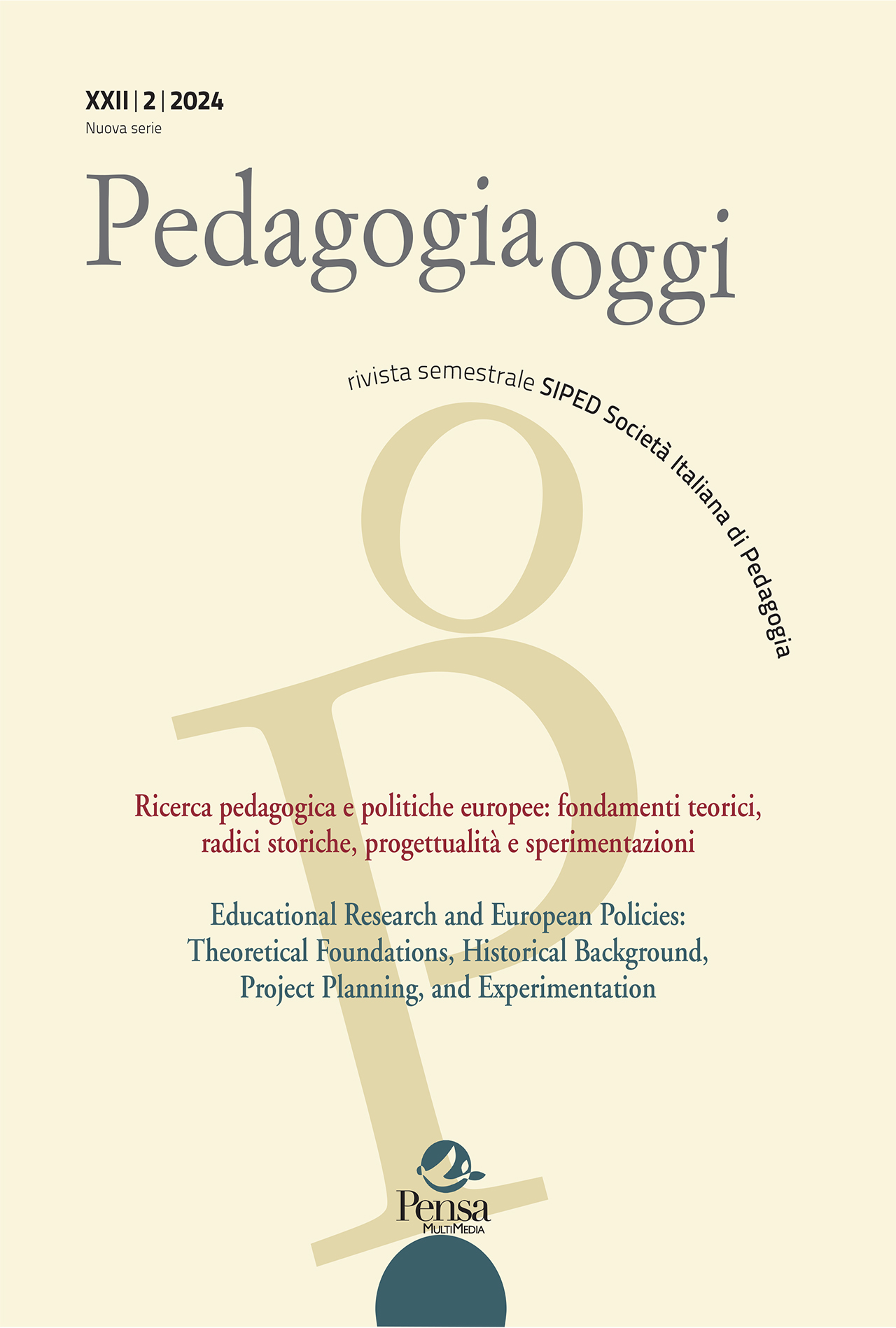Dai diritti alle strategie: il contributo della ricerca pedagogica per il coinvolgimento dei minorenni nei processi di policy-making
DOI :
https://doi.org/10.7346/PO-022024-03Mots-clés :
partecipazione dei minorenni, ricerca pedagogica, policy-making, documenti child-friendly, Strategia dell’UE sui Diritti dell’InfanziaRésumé
L’adozione nel 1989 della Convenzione ONU sui Diritti dell’Infanzia e dell’Adolescenza ha rappresentato una svolta nel riconoscimento dell’infanzia come interlocutore fondamentale per la definizione delle politiche, influenzando la percezione culturale dell’infanzia e orientando le pratiche educative verso una visione dei minorenni come soggetti proattivi e detentori di diritti. Tuttavia, i minorenni rimangono spesso esclusi dai processi di policy-making e, inoltre, le stesse policy risultano poco accessibili.
Il contributo esamina lo sviluppo della Strategia dell’UE sui Diritti dell’Infanzia, un caso di studio che ha coinvolto oltre 10.000 minorenni e ha prodotto documenti in formati “a misura di bambina e bambino” in varie lingue dell’UE. Questa analisi mira a sottolineare quanto solleva questioni cruciali per la ricerca pedagogica connesse alla dimensione formativa insita nei meccanismi di condivisione dei processi che portano alla creazione di policy nonché nelle pratiche di costruzione (partecipata) delle stesse, interrogando i significati del costrutto di cittadinanza democratica.
Téléchargements
Publié-e
Numéro
Rubrique
Licence
(c) Tous droits réservés Elisabetta Biffi, Chiara Carla Montà 2025

Cette œuvre est sous licence Creative Commons Attribution 4.0 International.




